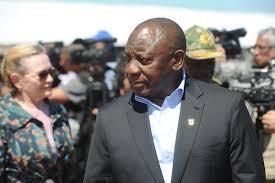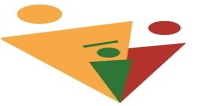Ramaphosa forces parents to send children to failing schools
On Friday 1 November 2018, President Cyril Ramaphosa made a controversial comment. In his comment he stated that he wishes to propose a law that will criminalise parents who fail to send their children to school. The SA Schools Act (Chapter 2, 3 (6a, b)) states that parents who, without just cause fail to send their children to school will be guilty of an offence and liable to imprisonment of 6 months. The Bela Bill proposes that the prison term be extended to 6 years.
I fully support his view that education is a means of breaking the cycle of poverty and that through education children can achieve more and rise above their circumstances. It is because I share this belief that I volunteer at a local primary school as an assistant to the remedial teacher. It is also because of this belief that I home educate my child. At least this way there is one more space for a child whose parents are not able or willing to facilitate their child’s education.
President Ramaphosa is unfortunately using the stick instead of the carrot approach. Yes, there are parents who are not willing to take responsibility for the care and education of their children, but there are a large number of caring parents who will not or cannot send their children to school. How can a parent send a child to school when there is a dire shortage of schools? When the average learner-teacher ratio is 35 to 1? When teachers are not able to teach because of over-crowding, intimidation and violence? When parents fear for the safety and well-being of their children? Does this constitute just cause or will these parents face criminal charges?
The higher the learner-teacher ratio the poorer the quality of education. A teacher cannot give each child the individual attention needed. There is no time to address the gaps in understanding and knowledge. This is a major problem in particularly poorer areas where parents are not able to assist their children with homework or with providing for extra classes. The child who falls behind stays behind. This results in learners leaving school at age 15 or grade 9 without being able to read.
His comment raises other questions. What does it mean to receive an education and is school attendance the only means through which this can be achieved? The Department of Basic Education (DBE) states in the Education Information Standards, Dictionary of Education Concepts and Terms 2010 that the definition of education is: “Education undertaken in an educational institution established, declared or registered in terms of the Child Care Act, South African Schools Act, Adult Basic Education Act, Further Education and Training Colleges Act, Higher Education Act or a provincial law.” This equates to compulsory school attendance.
Article 11 of The African Charter on the Rights and Welfare of the Child to which South Africa is a signatory and UN Convention Article 29 states that every child has the right to an education, to develop his or her personality, talents and mental and physical abilities to their fullest potential.
Justice Bess Nkabinde explained in a judgment made in 2011 that: “The significance of education, in particular basic education, for individual and societal development in our democratic dispensation in the light of the legacy of apartheid, cannot be overlooked. The inadequacy of schooling facilities, particularly for many blacks, was entrenched by the formal institution of apartheid, after 1948, when segregation even in education and schools in South Africa was codified. Today, the lasting effects of the educational segregation of apartheid are discernible in the systemic problems of inadequate facilities and the discrepancy in the level of basic education for the majority of learners.
“... [B]asic education is an important socioeconomic right directed, among other things, at promoting and developing a child‘s personality, talents and mental and physical abilities to his or her fullest potential. Basic education also provides a foundation for a child‘s lifetime learning and work opportunities.”
When reflecting on this and South Africa’s performance in the Progress in International Reading Literacy Study (PIRLS) 2016 (which found that 78% of Grade 4 children cannot read for meaning) and our ranking by the Organisation for Economic Co-operation and Development (OECD) in 2015, which ranked us 75th out of 76 for quality of education, one can surmise that simply attending school does not constitute obtaining an education.
The old adage “It takes a community to raise a child” comes to mind, but it seems that government disagrees. We are supposed to hand our children over to teachers and educators. To be educated according to the wishes of the DBE.
I propose it is time for government to truly consider alternatives to public school attendance. To allow parents the freedom to educate their children and to allow them to take care of their children. Families are the building blocks of communities and strong families result in strong communities. Home education and small community schools are viable options even in poorer areas. Over the last 20 years home education has proven itself as an effective means of educating children (for more on this please visit: http://www.south-african-homeschool-curriculum.com/homeschoolers-achievements.html) and it is growing in popularity.
With access to libraries and community centres children can be equipped for the future in a safe and stimulating environment. Excellent (free) home education resources exist, and a parent does not need a teacher’s qualification to facilitate the education of his/her child. Never underestimate the power of a dedicated parent. Parents sharing resources (such as time, knowledge and skills) will enrich their children’s lives and offer them opportunities for learning far beyond what a school can give.
By exploring and encouraging these alternatives, government will be able to lighten the burden on the public-school system and hopefully they can achieve a more favourable learner-teacher ratio, safer schools and better outcomes.

Events
Has no connect to show!
Legal & Research
Homeschooling and the law
Home schooling was recognized in 1996 in Section 51 of the SA Schools
+ ViewCentres
Homeschool ABC
Support
Curriculums
Cambridge & International ...
As of 1 January 2025, Macmillan Education is the sole agent ...
PASS Ged Academy
Pass GED® Academy is your online pathway to achieving your Grade 12 ...
Frequently Asked Questions
-
Do home learners sometimes wish they were in school and were normal?
They generally like being homeschooled. Some homelearners go to school for the experience but many return to homeschooling as within the homeschool...
-
Do I need to be a qualified teacher?
No. Research has found no correlation between the qualification of the parent and the academic performance of the child. Research shows that...
-
Do home learners get homework?
In general all their schoolwork is homework and they do not get to do extra work in the afternoons. A tutor might give some extra work to complete...
-
What is home education or homeschooling?
Home education is the oldest form of education. The school system as we know it is actually fairly new. It is done under the guidance and the...

































Comments